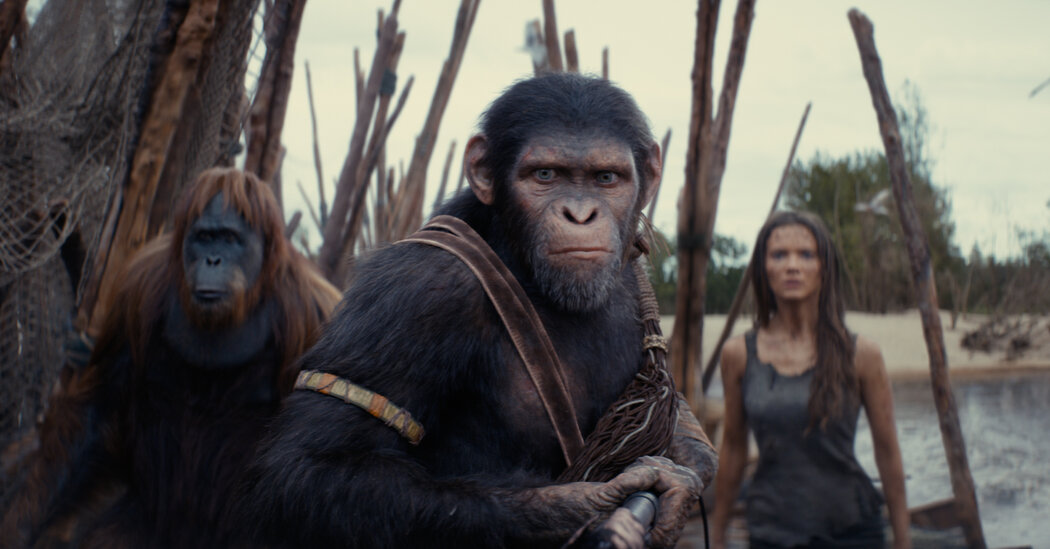Visual cues indicate that Proximus Caesar’s kingdom is modeled partly on the Roman Empire, with its colonizing influence and its intention to sweep the riches of the ancient human world — its history, its labor, its technology — into its own coffers. By telling his version of Caesar’s legacy, Proximus Caesar makes the apes believe they are part of some mighty, unstoppable force of history.
But of course, history has a habit of repeating itself, whether it’s ancient Rome or Egypt, and in Proximus Caesar’s proclamations one detects a bit of Ozymandias: Look on his works, ye mighty, and despair! “Kingdom of the Planet of the Apes” is set in the future, but like a lot of science fiction — “Dune,” for instance, or “Battlestar Galactica,” or Walter Miller’s “A Canticle for Leibowitz” — there’s a knowing sense that all this has happened before, and all this will happen again.
That’s what makes “Kingdom of the Planet of the Apes” powerful, in the end. It probes how the act of co-opting idealisms and converting them to dogmas has occurred many times over. What’s more, it points directly at the immense danger of romanticizing the past, imagining that if we could only reclaim and reframe and resurrect history, our present problems would be solved. Golden ages were rarely actually golden, but history is littered with leaders who tried to make people believe they were anyhow. It’s a great way to make people do their bidding.
There are some hints near the end of “Kingdom of the Planet of the Apes” of what might be next for the franchise, should it be fated to continue. But the uneasy fun of the series is we already know what happens, eventually; it was right there in the first movie, and the warning it poses remains bleak.
At the start of the 1968 film, the star Charlton Heston explains, “I can’t help thinking somewhere in the universe there has to be something better than man.” You might have expected, from a movie like this, that “better” species would be these apes. But it turns out we might have to keep looking.
Kingdom of the Planet of the Apes
Rated PG-13, for scenes of peril and woe and a couple of funny, mild swear words. Running time: 2 hours 25 minutes. In theaters.


